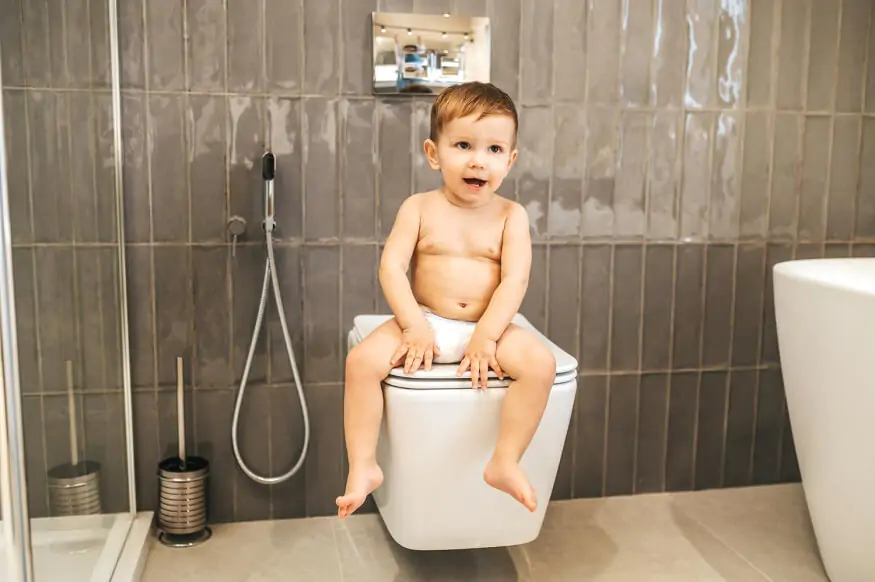Babies, especially in their early months, can experience episodes of loose motions or diarrhea. As a parent, it can be distressing to witness your little one uncomfortable and unwell. However, there are effective methods and medicines for infants for loose motion for quick relief. Let’s explore these approaches while considering the importance of seeking professional advice for your baby’s health.
Understanding the Causes:
- Infections:
- Food Sensitivities:
- Teething:
- Formula Issues:
Loose motions in infants are often a result of viral or bacterial infections. Rotavirus is a common culprit, leading to gastrointestinal distress in young children.
Introducing new foods to your baby’s diet can sometimes trigger loose motions. Pay attention to any recent changes in your baby’s diet to identify potential culprits.
The teething process can cause increased saliva production, leading to changes in bowel movements for some infants.
If your baby is formula-fed, the type or brand of formula may contribute to digestive issues. Consult your pediatrician if you suspect formula-related concerns.
The Role of Professional Guidance:
While home care measures are beneficial, it’s crucial to emphasize the importance of seeking professional guidance when needed. Your pediatrician is a valuable resource in understanding your baby’s individual health needs. They can conduct thorough assessments, recommend appropriate diagnostic tests if necessary, and tailor advice specific to your baby’s health profile.
Consult a Pediatrician:
If loose motions persist or are accompanied by other concerning symptoms, consult your pediatrician promptly. A medical expert can determine the underlying reason and suggest the best course of action.
Oral Rehydration Solutions (ORS):
ORS is a crucial medicine for infants for loose motion management. By restoring lost fluids and electrolytes, it helps shield the body from dehydration. Consult your pediatrician for the appropriate ORS solution and dosage suitable for your baby’s age and weight. Diarrhea in infants treatment can also be done by ORS.
Probiotics for Babies:
Probiotics are good bacteria that help the normal balance of gut flora to be restored. To find the best probiotic pills for little children, speak with your pediatrician. These supplements can be especially beneficial and act as a medicine for infants for loose motion if the cause is linked to an imbalance in the baby’s gut bacteria, it can also be used as a remedy for diarrhea in infant treatment.
Exclusive Breastfeeding (for Breastfed Infants):
If your baby is exclusively breastfed, continue nursing on demand. Breast milk offers vital nutrients and is easily digested. Breastfeeding can also help prevent dehydration in infants with loose motions and act as a natural medicine for infants with loose motions.
Appropriate Medication:
A medical expert may prescribe particular drugs to treat loose movements. Please be aware that some medications might be dangerous for young children. See your pediatrician before giving your kid any recommended medications.
Maintain Hygiene:
Ensure proper hygiene during diaper changes and overall baby care. Frequent diaper changes, gentle cleansing, and the use of diaper rash creams can prevent irritation and discomfort associated with loose motions.
Avoid Certain Foods:
For infants who have started on solid foods, temporarily avoid certain foods that may exacerbate loose motions. These may include high-fiber foods, dairy products, and foods that are known to be common allergens.
Monitor for Dehydration:
Be alert for symptoms of dehydration, such as decreased urine production, dry mouth, and fatigue. Get medical help right away if you observe any of these symptoms. Diarrhea in infants treatment can also be required to monitor dehydration.
Gradual Introduction of Solid Foods:
If your baby is on a solid food diet, reintroduce easily digestible foods gradually. Start with simple, bland foods such as rice cereal, bananas, or applesauce.
Tummy Time and Gently Massage:
Encourage tummy time and gentle massages, which can help alleviate gas and discomfort in the baby’s digestive system.
Treatment of diarrhea:
Addressing the treatment of diarrhea in infants requires a detailed approach that combines home care practices, a few preventive measures, and expert professional guidance. When it comes to the treatment of diarrhea, parents play a critical role in observing and responding to their infants’ needs, fostering a healthy and secure environment for the little ones. One should always prioritize open communication with the pediatrician, ensuring the baby receives the best possible care for optimal growth and well-being. Treatment of diarrhea becomes a joint effort between parents, caregivers and healthcare providers to ensure the well-being of the little ones.
Extended Insights on Managing Loose Motions in Infants
Dealing with loose motions in infants is a common concern for parents, and while the initial steps mentioned above are essential, it’s beneficial to delve deeper into understanding the causes, preventive measures, medicine for infants for loose motion and additional considerations when addressing this issue.
Additional Considerations:
- Allergy Testing:
- Environmental Factors:
If your baby’s loose motions are persistent and food-related, allergy testing may be considered to identify potential allergens.
Pay attention to environmental factors that may contribute to digestive discomfort, such as exposure to smoke or changes in living conditions.
When seeking effective loose motion remedies for infants, caregivers often navigate a realm of home care practices and professional guidance. The goal in finding suitable treatment for loose stools in infants is to strike a balance between providing comfort at home and consulting with a healthcare professional. Identifying appropriate loose motion remedies for infants can alleviate concerns for parents, allowing them to actively contribute to their baby’s well-being. Always remember that the treatment for loose stools in infants should be approached with caution and, when necessary, under the guidance of a pediatrician who can provide tailored advice based on the infant’s specific needs.
Addressing loose motions, and diarrhea in infant treatment requires a comprehensive strategy that integrates effective home care practices, proactive preventive measures, and the guidance of healthcare professionals. Parents serve as key participants in this process, actively observing and responding to their baby’s needs to create a nurturing and secure environment. The collaboration between parents and pediatricians is a must, emphasizing the importance of transparent communication to ensure that the baby receives optimal care, promoting healthy growth and overall well-being. By embracing a holistic approach and maintaining a strong partnership with healthcare providers, parents can navigate the challenges of managing loose motions in infants with confidence and effectiveness.
At Euroschool, we understand the importance of a child’s well-being and health. Our commitment extends beyond academic excellence to supporting parents in navigating various aspects of childcare. We think a child who is well and content would do better in school and other areas of life. Our method ensures a caring atmosphere that supports a child’s physical and emotional well-being by taking a holistic approach to understanding their requirements. Through educational initiatives and comprehensive support, euroschool stands as a partner in your parenting journey, offering guidance on various aspects, including the health and care of your little ones.









